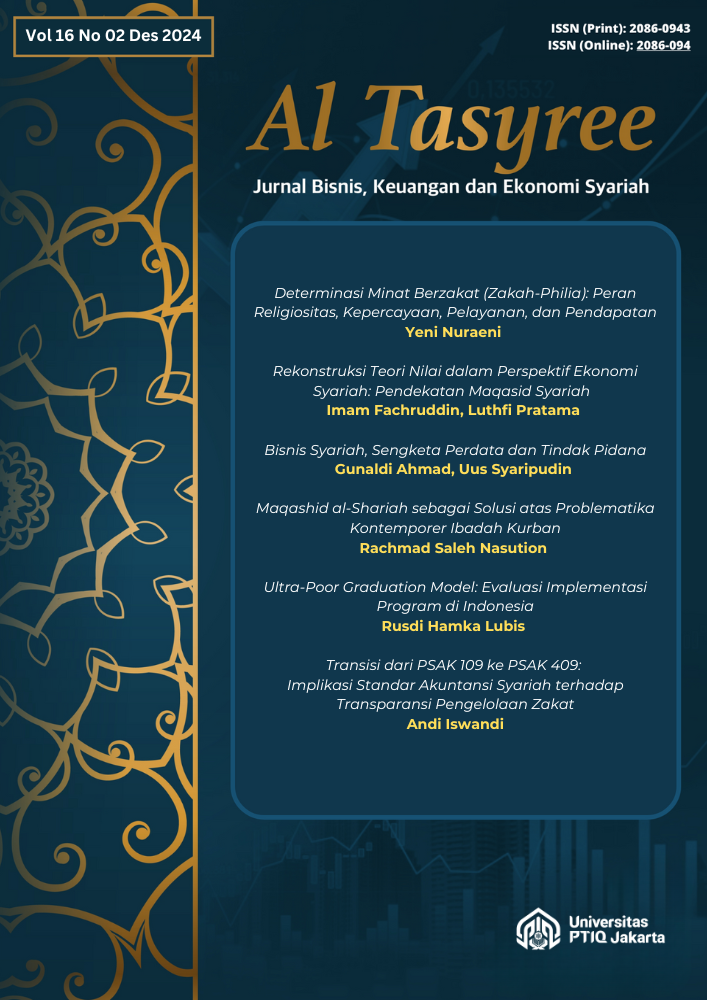Bisnis Syariah, Sengketa Perdata dan Tindak Pidana
DOI:
https://doi.org/10.59833/9jbsgg26Keywords:
Sharia Business, Profit And Lost Sharing, Civil Cases, Criminal ActsAbstract
This article explores the intersection of sharia business practices with civil disputes and criminal acts in Islamic banking. It examines legal challenges arising from late repayments, fraudulent contracts, and criminal offenses related to sharia financial transactions. Using a qualitative method with statutory, juridical, and historical approaches, this study draws upon primary legal sources including decisions from religious courts, appellate rulings, cassation decisions, and Law No. 21 of 2008 on Sharia Banking. Secondary sources include books, journal articles, and other regulatory documents. The findings of this study indicate that sharia business must adhere to principles such as transparency, fairness, and halal compliance. Furthermore, disputes in sharia business are increasingly adjudicated through religious courts, while criminal violations are prosecuted under specific provisions in the Sharia Banking Law. The paper underscores the importance of legal safeguards to support the rapid growth of sharia-based financial institutions in Indonesia.

